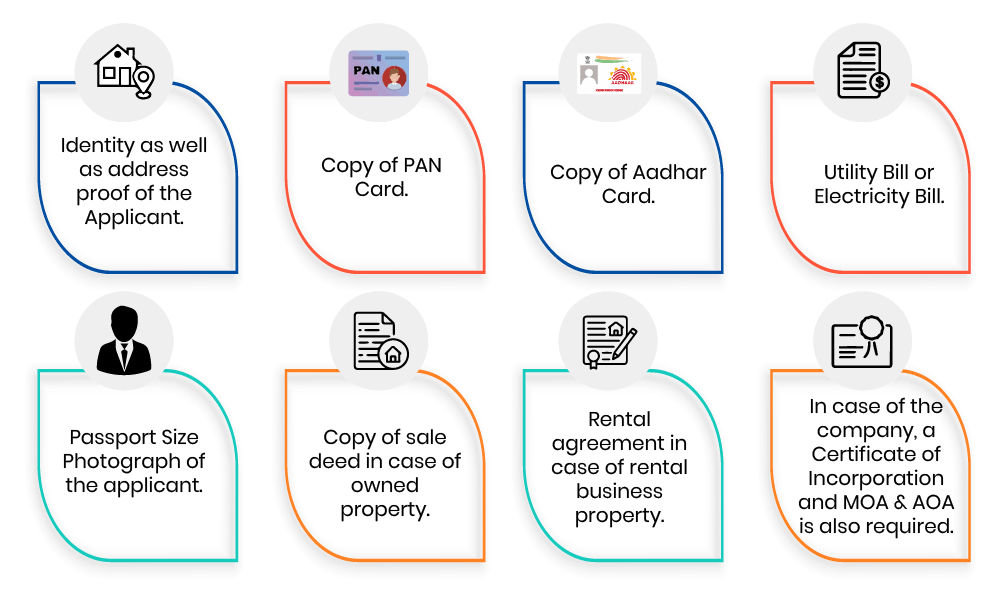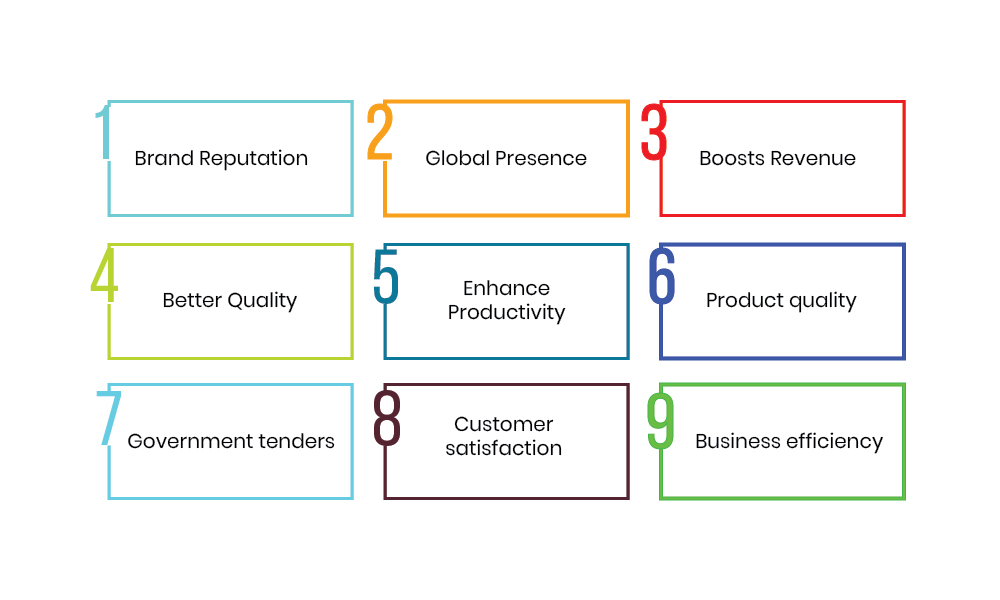ISO Certification
in India
Get a quick online ISO Certification in India for your business. LegalTax helps you in the entire process of securing ISO 9001 Certification in India. ISO 9001, ISO 14001, ISO 27001, ISO 45000, ISO 50001 and lots of more.
How Partnership Firm Registration Work ?


ISO Certification in India
ISO 9001 Certification is an internationally recognized standard for a Quality Management System (QMS). It helps organizations demonstrate their ability to consistently provide products and services that meet customer and regulatory requirements. ISO 9001 is the most widely adopted standard in the ISO 9000 series and the only one that organizations can be officially certified against.
First released in 1987 by the International Organization for Standardization (ISO), which includes national standards organizations from over 160 countries, ISO 9001’s latest version, ISO 9001:2015, was issued in September 2015. This standard applies to all types of organizations, regardless of their size or industry.
Over a million organizations in more than 160 countries have used the ISO 9001 standard to enhance their quality management systems. By adopting ISO 9001, organizations can improve operations, increase efficiency, drive continuous improvement, and ensure customer satisfaction.
While ISO 9001 certification is not mandatory, it provides a clear demonstration to customers, suppliers, regulators, and stakeholders that an organization has implemented an effective QMS. To achieve certification, an organization must implement a QMS that complies with ISO 9001 requirements and undergo an audit by an accredited certification body.
In India, the ISO 9001 certification is valid for three years and requires renewal to maintain its status.
Common Categories of ISO Certification In India:
Documents Required For ISO Certification in India:

- ID and Address proof of the applicant: This could be any government-issued identification document like a passport, driver’s license, or voter ID card.
- PAN card: Permanent Account Number (PAN) card is a mandatory requirement for most official transactions in India.
- Aadhar card: Aadhar is a unique identification number issued by the Indian government, and it serves as proof of identity and residence.
- Utility Bill or Electricity Bill: A recent utility bill, such as electricity, water, or gas bill, is required as proof of the business’s physical address.
- A passport-sized photograph of the applicant: A recent passport-sized photograph of the person applying for the certification.
- Copy of sale deed in case of owned property: If the business owns the property where its operations are located, a copy of the sale deed is required.
- Rental agreement: If the business operates on a rented property, a copy of the rental agreement is needed.
- Certificate of incorporation and MOA & AOA: These are documents that establish the existence and legal status of a company in India. The certificate of incorporation is issued by the Registrar of Companies (ROC) after registering the company under the Companies Act, 2013. The memorandum of association (MOA) and articles of association (AOA) are documents that define the objectives, scope, and rules of the company. They are required to prove that you have a valid and registered business entity in India.
Process Of ISO Certification Online:
- Identify the relevant ISO standard for your organization.
- Conduct a gap analysis to assess your current level of compliance.
- Develop and implement a quality management system that aligns with the ISO standard.
- Train and educate your staff on the quality management system and the ISO standard.
- Perform internal audits and corrective actions to ensure continuous improvement.
- Hire an accredited certification body to conduct an external audit and verify your compliance.
- Receive your ISO certification online and celebrate your achievement.
Types Of ISO Certification in India
ISO Certification in India helps organizations improve their processes, enhance quality, and boost customer confidence. Below are the types of ISO certifications available in India:
- Quality Management System (QMS) – ISO 9001:2015
ISO 9001 sets the standards for a quality management system, focusing on customer satisfaction, process improvement, and ensuring consistent product/service quality. It is one of the most globally recognized ISO certifications. - Environmental Management System (EMS) – ISO 14001:2015
ISO 14001 addresses an organization’s commitment to environmental management, sustainability, and reducing its environmental impact. It provides guidelines for identifying and controlling the environmental aspects of an organization’s activities. - Occupational Health and Safety Management System (OHSMS) – ISO 45001:2018
ISO 45001 specifies the requirements for an occupational health and safety management system, helping organizations create a safe and healthy work environment, prevent work-related injuries, and promote employee well-being. - Information Security Management System (ISMS) – ISO 27001:2013
ISO 27001 focuses on information security management, implementing measures to protect sensitive information from unauthorized access, breaches, and potential threats. - Food Safety Management System (FSMS) – ISO 22000:2018
ISO 22000 is designed for organizations in the food industry, focusing on the implementation of effective food safety management systems to ensure the safe production, handling, and distribution of food. - Energy Management System (EnMS) – ISO 50001:2018
ISO 50001 sets standards for implementing an energy management system, aiming to enhance energy efficiency, reduce energy consumption, and improve overall energy performance. - Information Technology Service Management (ITSM) – ISO 20000-1:2018
ISO 20000-1 establishes requirements for an effective IT service management system, enabling organizations to deliver high-quality IT services. - Medical Devices Quality Management System (MDQMS) – ISO 13485:2016
ISO 13485 is tailored for organizations in the medical device industry, focusing on design, development, production, installation, and servicing of medical devices, ensuring compliance with regulatory requirements and quality standards. - Business Continuity Management System (BCMS) – ISO 22301:2019
ISO 22301 outlines the requirements for establishing a business continuity management system, helping organizations prepare for and respond to disruptions and emergencies effectively.
Benefits Of ISO Certification in India:
ISO certification 9001 can provide many benefits for businesses in India, such as:

Enhancing customer satisfaction and loyalty by consistently meeting their expectations and delivering reliable results.
Improving operational performance and productivity by minimizing errors, waste, and costs.
Increasing market access and competitiveness by adhering to international regulations and standards.
Fostering innovation and continuous improvement by embracing best practices and encouraging creativity.
Strengthening stakeholder trust and credibility through transparency and accountability.
Boosting employee engagement and motivation by ensuring a safe and healthy work environment and fostering a culture of excellence.
Facilitating risk management and compliance by identifying and addressing potential threats and opportunities.
Supporting sustainability and social responsibility by reducing environmental impacts and contributing to social development.
Building a strong brand image and reputation by demonstrating a commitment to quality and excellence.
Why should Choose Legaltax For online Apply ISO Certification in India ?
Legaltax is a trusted provider of online ISO Certification in India. Our team of experienced and qualified professionals is dedicated to helping you achieve the highest standards of quality, safety, and efficiency in your business. Whether you’re seeking ISO 9001, ISO 14001, ISO 27001, or any other ISO standard, we guide you through the entire process—from documentation to audit. With Legaltax, you can enjoy:
- Fast and hassle-free certification
- Competitive pricing and flexible payment options
- Expert support and guidance throughout the certification journey
- Improved customer satisfaction and loyalty
- Enhanced market credibility and reputation
- Increased productivity and profitability
FAQ’s



